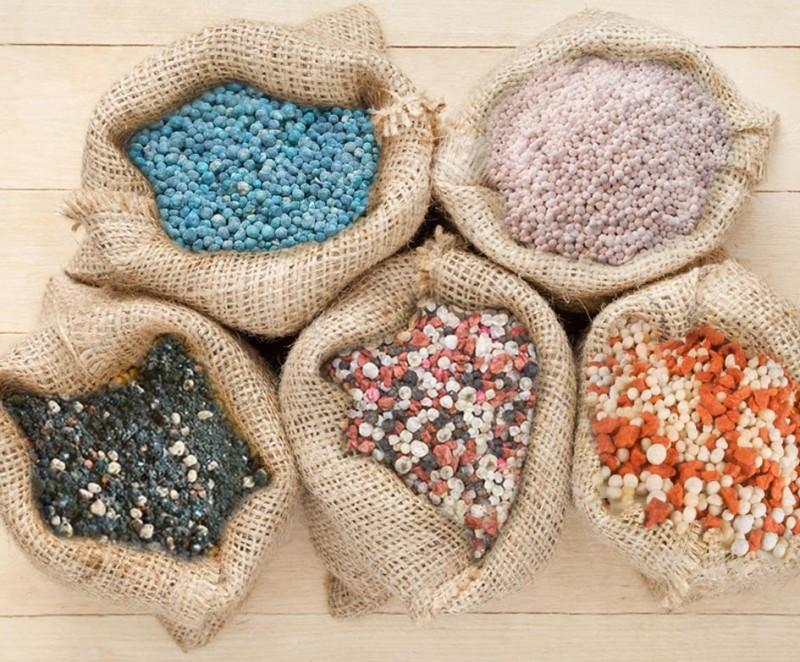From April to June, India imported 7.74 million tons of Russian fertilizer, a figure representing about two-thirds of all its fertilizer imports from Russia last year, making the country India’s top supplier, according to information provided in Parliament by the minister of chemicals and fertilizers, Mansukh Mandaviya.
India turns to Russian fertilizer, showing challenge of isolating Moscow

India has dramatically increased its imports of fertilizer from Russia in recent months, demonstrating the difficulties the United States and its allies face in isolating Moscow over the invasion of Ukraine.
Unlike oil, fertilizer is not included in the U.S. sanctions placed on Russia because of the invasion.
For India, this year’s monsoon-season rice crop is crucial after a scorching heat wave in March damaged the country’s staple wheat crop and reduced yields. With food stocks depleted and the climate uncertain, India banned wheat exports this year, saying its food security was “at risk.”
The country has shied away from joining the Western coalition arrayed against Russia, initially because of its dependence on Moscow for weaponry and now because of concerns over energy and food security.
India’s imports of Russian coal and sunflower oil also have jumped. Overall, Russia has become the 10th-largest source of imports to India, according to data from the Indian Ministry of Commerce and Industry, ranking much higher than in previous years. Through May, India imported goods worth $8.3 billion from Russia, nearly triple the value for the same period last year.
Although the local production of urea, India’s most widely used fertilizer, is able to meet most of India’s needs, the country relies on imports of raw materials for potassium-, nitrogen- and phosphate-based fertilizers. India turned to Russian shipments after its top fertilizer supplier, China, imposed curbs last year on fertilizer exports to protect its own farmers amid soaring domestic prices.
Russia also has limited its overall fertilizer exports since last year but has continued to supply India. A report in the Indian Express newspaper suggested that Russian fertilizer was available at cheaper rates than the market prices. Officials from the Ministry of Chemicals and Fertilizers did not respond to a request for comment.
India is in a difficult position because it relies on fertilizer imports at a time of high global prices, said Manjari Chatterjee Miller, a senior fellow for South Asia at the Council on Foreign Affairs.
She said that the Biden administration has, so far, been “remarkably understanding” of India’s position on oil and other imports from Russia and that the issue was not likely to damage the relationship between the countries. “In the long run, it will depend on how the Ukraine crisis plays out, and whether India and the United States both decide that the costs of deepening their partnership is too high. But that seems unlikely,” she said.
The Brazilian ambassador to Russia said that the two countries had managed to circumvent the logistical and payment difficulties posed by sanctions and that Brazil was receiving deliveries of Russian fertilizers, according to a report in June by the Russian news agency Tass.
“Since we have excellent relations with Russia in the trade sphere and supplies [of fertilizers] continue, I do not see reasons to look for them in a different place. We continue receiving fertilizers from Russia,” said the ambassador, Rodrigo de Lima Baena Soares, according to the Tass report.
Sanctions researcher Edoardo Saravalle, formerly of the Center for a New American Security, said it would be necessary to provide alternative sources of imports if countries including India are not to turn to Russia.
Russia’s position as a commodities exporter has “irrevocably deteriorated,” it is struggling to import parts and technology from “hesitant trade partners,” and domestic production has come to a “complete standstill,” the study concludes.
Saravalle said sanctions have been effective in imposing pain on Russia even if they have not brought its war in Ukraine to a stop.
“You’re never going to achieve a full blockade,” Saravalle said. “We’re still in the early stages of this conflict. Iran sanctions were the product of years of buildup.”
Read also
Wheat in Southern Brazil Impacted by Dry Weather and Frosts
Oilseed Industry. Leaders and Strategies in the Times of a Great Change
Black Sea & Danube Region: Oilseed and Vegoil Markets Within Ongoing Transfor...
Serbia. The drought will cause extremely high losses for farmers this year
2023/24 Safrinha Corn in Brazil 91% Harvested
Write to us
Our manager will contact you soon



